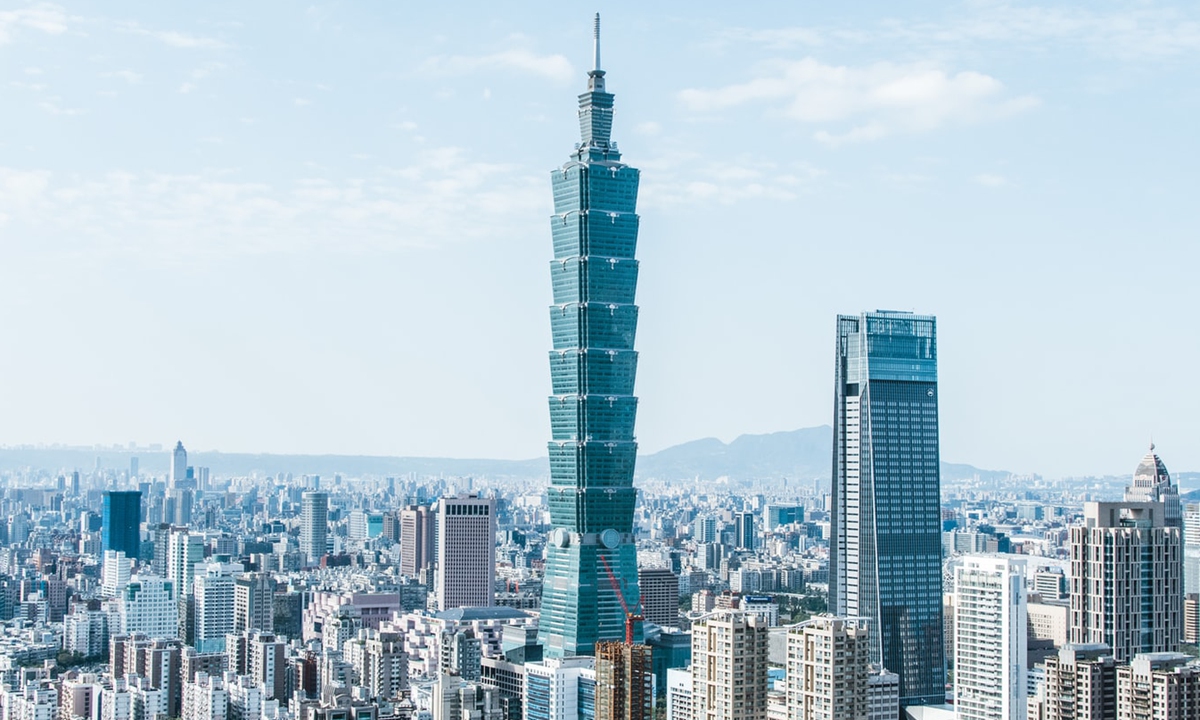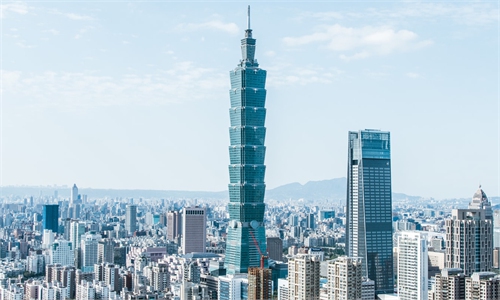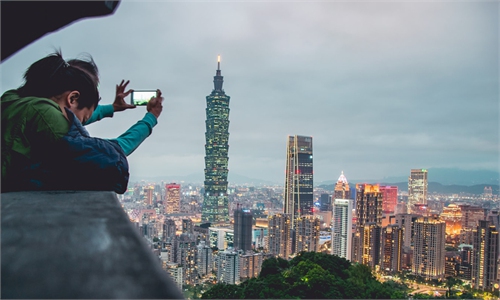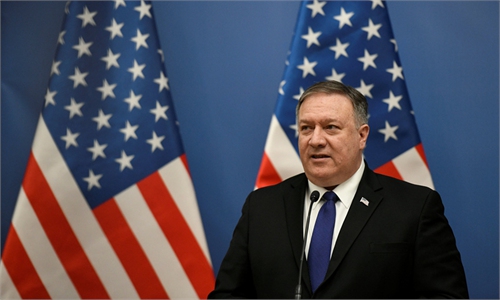Leaders of separatist forces 'should be blacklisted' as report says Chinese mainland to sanction Taiwan secessionists: analysts

Taiwan Photo: Unsplash
After a Hong Kong newspaper reported on Sunday that the Chinese mainland will formulate a blacklist of "stubborn Taiwan secessionists," both sides of the Taiwan Straits wondered who will make the list, as mainland experts said the blacklist should include the leaders, influential personnel of the secessionist forces, and the head of Taiwan's executive body.
According to Taiwan media, some Taiwan secessionist politicians questioned the validity of a "blacklist" to show they are not worried about being on the blacklist. Tsai Ing-wen, the head of the separatist Democratic Progressive Party (DPP), and regional leader of the island, has remained silent.
Yang Lixian, deputy secretary general of the National Society of Taiwan Studies, told the Global Times that by releasing the blacklist, the mainland will conduct much stricter and severer crackdown against the Taiwan secessionists, to "reaffirm the mainland's firm stance of showing zero tolerance for Taiwan secessionism."
Tang Xiang-long, a Taiwan TV commentator and expert on cross-Straits relations, told the Global Times that after Tsai Ing-wen won local elections in Taiwan earlier this year, pro-secessionist politicians and media in Taiwan have unscrupulously flooded society with anti-China sentiments, hatred against the Chinese mainland and secessionism.
"There is no force within the island that can balance the DPP and secessionism. The opposition party KMT has also marginalized the narrative of the 1992 consensus, which acknowledges the one-China principle. So Taiwan has already entered the era of 'only secessionists have a say'," he said.
Chinese mainland experts said once the blacklist is officially released, it would have the same significance as "the war criminals list of the civil war" which was issued by the Communist Party of China (CPC) in December 1948 and January 1949, a few months before the last major battle launched by the People's Liberation Army against the KMT military forces to reunify the Chinese mainland.
Issuing the 1949 war criminals list told people across the country who should be held responsible for the war, and clearly explain the legitimacy and necessity of the CPC to bring them to justice, said experts, adding that the potential Taiwan secessionist blacklist will have the same function. Apart from clarifying who should be punished, it also lists who should be held responsible for the worsening cross-Straits ties and any potential war.
Most Taiwan secessionists that would likely be on the blacklist are politicians, heads of Taiwan secessionist NGOs, and people who sponsor them, said observers. But Taiwan-based experts reminded that some Taiwan entrepreneurs are actually have no choice but to provide a "political capital contribution" to the DPP during local elections, as the separatist party is now controlling the island and the DPP will seek revenge if they don't show support.
"So if the mainland authorities want to put some sponsors on the list, they need to be careful and clearly figure out who are the real funder and who is being forced to contribute, to avoid hurting the innocent," Tang said.
The first blacklist won't be long, and it might have some names added to list in the future according to the changing situation, said analysts.
Chinese mainland experts noted that Su Tseng-chang, head of Taiwan's executive body, who is being extremely terrible and hostile toward the mainland, and has caused harm to cross-Straits relations, is very likely to be included on the blacklist.
Su is a typical extreme, die-hard Taiwan secessionist ideologue who holds strong hatred against the Chinese mainland. On January 24, when the Chinese mainland was suddenly hit by the COVID-19 and desperately needed medical materials, Su banned Taiwan suppliers from sending medical masks to the mainland. Su's coldhearted acts were severely criticized by people on both sides of the Taiwan Straits.
According to Taiwan's local media, Su has also made great efforts to push a so-called "constitutional amendment" in recent years, which is intended to wipe out the one-China principle, a crucial legal step to realize Taiwan secessionism.
Su also applied a double-standard that treated Taiwan residents who contracted COVID-19 and returned from the US with taxpayers' money, while applying extremely rigorous tests on Taiwan residents who returned from the mainland, the Xinhua News Agency reported.
In February 2019, Su said if the Chinese mainland launched a military operation to reunify the island he "would fight the People's Liberation Army until the end" even if he "only had a broom to show his "determination and bravery." His remarks were mocked by Taiwan-based media outlets. Some mainland netizens even couriered a broom to Su, according to guancha.cn, a Chinese mainland news portal website.
At present, Taiwan secessionists are not only operating within the island, but are taking actions that has spilled into the other regions, as they have ganged up with separatists in Hong Kong, Tibet, Xinjiang, as well as other anti-China forces in other countries, Tang said, noting that "it is impossible for Beijing to be tolerant and step back in the face of these matters."
A Beijing-based expert on Taiwan affairs who asked for anonymity told the Global Times on Sunday that with the blacklist, "the mainland authorities are sending a signal not only to the island [of Taiwan] but the whole country and the entire world that the Chinese mainland is seriously preparing for reunification of the island by any means."
"Those Taiwan secessionists who conduct rampant and even high-profile activities to damage cross-Straits ties and gang up with foreign forces to pursue Taiwan secessionism should know that they, sooner or later, will be judged and punished," he said.




